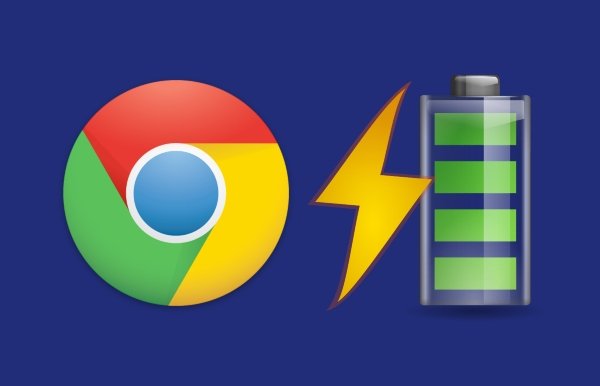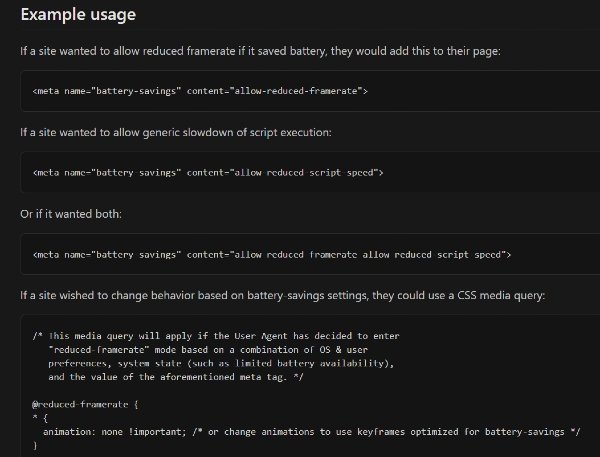Last month, we reported Chrome’s plans to intensively throttle JavaScript timer wake-ups to increase the device’s battery life by up to 2 hours. Now, Google is testing a new battery-saving feature, which will enable websites to recommend Chrome to save battery, TheWindowsClub has learned. Google Chrome’s upcoming Battery-Savings Meta Tag feature is currently available for experimentation via Origin Trial.

Google Chrome’s Battery-Savings Meta Tag
Google’s upcoming Battery-Savings Meta Tag support will allow websites to recommend battery-saving measures for Chrome to apply. This way, Chrome wants to optimize your CPU consumption and save battery life, especially on resource-intensive websites such as video streaming and video-conferencing websites. Google wants to experiment with this feature on Chrome v86 and v87.
How does the feature work?
Websites known for high CPU and battery consumption can request that Chrome optimizes for CPU or battery.
“Most modern OSes also have battery saving features that kick in either when the battery is low or the user wishes to save battery. Ideally web sites should be able to respect these settings. Sites may wish to advise the UA on which strategies work best for the site in these situations,” reads the explainer summary on GitHub.

For frame-rate reduction and the generic slowdown of script execution websites will require to employ a meta delivery mechanism by adding additional code to their page. Websites can also change behavior based on battery-savings settings by making relevant changes to their codebase.
In the future, websites would be able to identify if the user or OS has gone into a battery savings mode. In any case, the Chrome browser would be able to apply relevant battery savings settings to web sites. This feature will help progressive web apps (PWAs) implement a built-in battery-saving mode.
What is it that Google Chrome is trying to fix?
From what we know far, it is fairly obvious that Google wants to fix your excessive CPU consumption and save the battery life while browsing resource-intensive websites. But at the core, what Google may be addressing is your reluctance to use Chrome when running low on battery. According to one report, Google Chrome is among the most battery-draining apps of 2020.
Such online reports are likely to influence your perception about Chrome being a battery-draining web browser, in turn negatively affecting its market share, something Google is now trying to address. Meanwhile, Microsoft continues to make Google nervous by making big claims about the new Chromium-based Edge being superior to Chrome.
As of July 2020, Chrome secures more than 65 percent of the worldwide market share across all platforms including desktops, smartphones, and tablets. Meanwhile, Edge beat Firefox to become the second most-used desktop browser after Chrome.